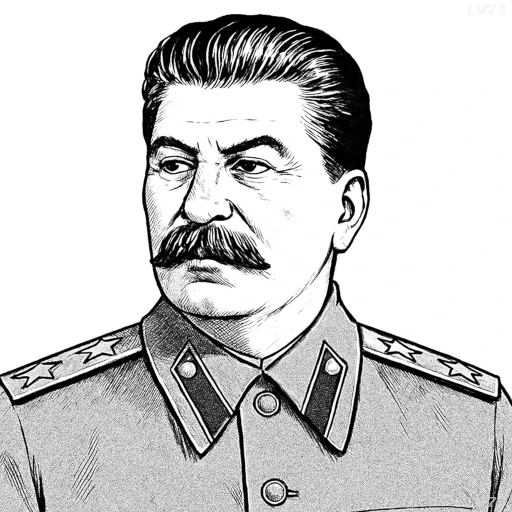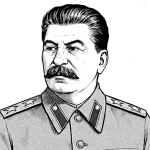“I trust no one, not even myself.”

- December 18, 1878 – March 5, 1953
- Born in Georgia
- Politician
table of contents
Quote
“I trust no one, not even myself.”
Explanation
This quote reflects Stalin’s profound paranoia and distrust, both of those around him and of his own judgment. It reveals a mindset shaped by a life spent in political struggle, where betrayal, deception, and the constant threat of opposition made trust an illusion. Stalin’s leadership was marked by his extreme control over both the Soviet government and the Communist Party. His mistrust led to widespread purges, where even his closest allies and trusted officials were accused of disloyalty, imprisoned, or executed. By claiming he did not even trust himself, Stalin illustrates the deep insecurities that came with absolute power and the fear of being overthrown.
The paranoia that pervaded Stalin’s reign is perhaps best exemplified by his Great Purge of the late 1930s, during which he eliminated perceived rivals, military leaders, and anyone suspected of harboring dissenting thoughts. Stalin’s quote reflects how, in such a system, even the most intimate relationships within the party were tainted by suspicion. This mistrust extended beyond politics, influencing personal relationships and daily life, as the fear of being betrayed by even one’s closest confidants was ever-present.
In a broader, modern context, this quote serves as a warning about the corrupting effects of power and the destructive nature of paranoia. It highlights the challenges that come with absolute control, where fear of betrayal can become all-consuming and lead to the destruction of relationships, alliances, and even entire communities. Today, the quote also emphasizes the importance of trust in both leadership and governance. Trust is essential for building cooperation, fostering transparency, and ensuring that decisions are made based on collaboration rather than fear. The absence of trust can be detrimental to both personal well-being and the health of any political system.
Would you like to share your impressions or related stories about this quote in the comments section?
